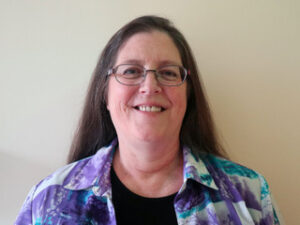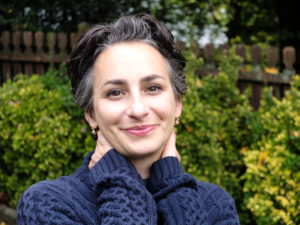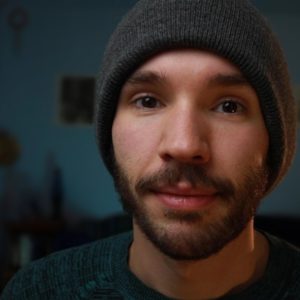Q&A with the Adoptee Hosts of The Making of Me Podcast
Louise Browne and Sarah Reinhardt created The Making of Me as a platform for conversations about all aspects of adoption. But it’s a podcast with a twist. In each episode, the hosts and their guests discuss a book about adoption. In the first season they tackled Nancy Verrier’s The Primal Wound, and now just a few episodes into their second season, they’re exploring another classic, Journey of the Adopted Self, by Betty Jean Lifton.
Meet the adoptee friends who pivoted from operating an ice cream truck to hosting a popular podcast.Can you each summarize your adoption journeys?
Sarah: My bio parents met in their first year of college but went their separate ways after the second semester ended; he went back to New Hampshire, and soon after, he was drafted in Vietnam. I’m not sure if he dropped out of college or what the circumstances were that he was drafted, but he never learned of the pregnancy. My bio mom kept it from her parents—weirdly, she was also adopted!—and on a plane from JFK (she was from Queens) to St. Louis where she was to go to nursing school, her water broke. There was no hiding that from her mother. She was not allowed to even hold me. I was immediately taken from her. I was placed with a foster mother for about six weeks and then adopted into my family. A few years later, they adopted a boy, and when he was five months old, they discovered they were pregnant with twins. They divorced when I was seven, and my brothers and I stayed with my dad (who remarried about five years later). My bio mom had four kids after me (and another she carried almost to term but lost after a terrible car accident)—all of whom were kept. My bio father, who died before I was able to meet him, had three kids, one from a second marriage. So I’m the oldest of seven biologically, and three from adoption. I also have three step-siblings. I met my bio mom and siblings in 1998 and stayed in touch with her until she died in 2009. I’m still in reunion with my sisters.
Louise: My biological mom chose to put me up for adoption in September 1968 after leaving college when she became pregnant with me. She was 18 years old. She’d known my biological father in high school in Colorado, where they dated. From what I’ve gathered, they met up again during the holidays and I was the result of that encounter. My biological father was already engaged to his girlfriend at the time who was also pregnant previous to their encounter. My bio mom took on the journey of having me on her own. My bio dad did know about me and signed off on my adoption. I believe that the decision to relinquish me was made by my bio mother “in her right mind” because I have letters from her to family members who had asked her to consider letting them raise me. She was very insistent that I have a father figure who was strong because of her missing some of that in her childhood and she did not want to see me being raised and not be my mother. She had strong convictions on having me be with an intact family. I do think it critically changed her path. From what I know from relatives, she may have regretted it later in life. She passed away at a young age in a drowning incident so I’ve never been able to ask her. I know who my bio dad is and who many of my family members are from knowing his name and having it confirmed on Ancestry. I have not had a reunion with them. I do stay in contact with my bio mom’s sister and cousins. My parents adopted me through an agency several days after I was born in Denver. They had one biological son and had lost a baby girl a few years prior to me in delivery. My mom could not have more children of her own. I then grew up in Littleton, Colorado
How did you meet?
Louise: Our sons were in elementary school together and we met through a mutual friend.
Sarah: Once we discovered we were both adopted, we became instant friends. Ultimately we opened a business together—a gourmet ice-cream truck in Los Angeles.
How did you decide to do a podcast about adoption together and what was your goal at the start?
Sarah: Adoption was what we initially connected over, and we had talked about starting a podcast. We were tossing around ideas and finally we were, “Uh, duh! We should talk about what we both know.”
Louise: Honestly, we didn’t really have a goal except to hear adoption stories and connect with other adoptees.
How did you find and build your audience? Were you already connected with a number of adoptees or with the adoptee community?
Sarah: We were not connected with the adoptee community. In fact, we didn’t even know there was such a thing until a few months in and we found Adoptee Twitter. Our initial audience came from word-of-mouth and friends listening and sharing, and then we started to build a following because people related to the stories and our connection with each other.
Louise: And then it took on a life of its own. People started reaching out to us to thank us, asking to be on the podcast and share their stories.
There are a number of adoptee podcasts – how do you describe The Making of Me?
Louise: I’d describe The Making of Me as more of a conversation around adoption. First we discuss a chapter of an adoption book. in Season One it was The Primal Wound by Nancy Verrier, and Season Two is Journey of The Adopted Self by Betty Jean Lifton. After we discuss the book, we bring on a guest to tell their story.
Sarah: I think what draws people to the podcast is that even though it’s a deep topic, we bring levity and honest back-and-forth with our guests.
How and why did you conceive of the idea of linking chapters of books to adoptees’ stories?
Sarah: The chapter discussions are not necessarily linked to the stories. It’s kind of its own thing that we do together before we bring a guest on. But every chapter, every adoptee can relate to.
Do you plan to continue basing the podcast on books about adoption, and if so, do you already have thoughts about books you want to highlight in the future?
Louise: We plan on continuing to base it on books about adoption, at least at this moment. We’ve got a list we’re going through. We’re thinking possibly about a memoir by an adoptee for our next book.
Louise, on your website bio, you write about learning that your birth mother had been killed in an accident, saying “This piece of information proved to be a touchstone between the guiding and protective voice in her head and the events of the past.” Can you say more about that and what you mean by that?
Louise: My bio mom’s family found me when I was 32 years old due to my bio grandmother being terminally ill. I learned the night that I got the call about them finding me that my bio mom had been killed in an accident when I was in the 2nd grade. This just made sense to me. I was overwhelmed, saddened but not that surprised, strangely. My entire life from around the fourth grade until my late 20s, I felt that I had a voice that protected me. Not my own internal voice, but a voice that would set me on the straight and narrow or give me warning signs when I was going off track too far. I always felt that it was ‘otherworldly’ and I have had many experiences since childhood with sensing people from beyond. When I found out that she was no longer on this earth I wasn’t shocked. I sort of knew this internally. It’s hard to explain. When I found out that she had passed away, I stopped having this sixth sense or voice in my head.
Louise, you’ve said that hosting the podcast has been life changing? In what way?
Louise: The way it has changed my life is that I never really had the experience of community with other adoptees. I have had adopted friends (many in fact), but when we touched on deeper issues about adoption that we all felt, I almost feel like we were scared to broach the topic. We would bond immediately over certain shared experiences that I couldn’t relate to others about, but would be a bit guarded about anything after that. I now have a sense that I can be more open to explore parts of myself that I have kept to myself and haven’t been able to describe or flush out. It is freeing and a bit scary.
Can you both describe your understanding of what is meant by being in the fog or coming out of the fog?
Sarah: How I see it, it’s waking up from the narrative I was told my entire life; I was “lucky,” I was “chosen”—and that was the end of the story. It’s having my eyes opened and understanding that was only the beginning of the story— seeing the deep trauma, how that first relinquishment (and subsequently second from my adopted mom and emotional abandonment from my adopted father) altered the course of my life, affecting almost every decision I’ve made, how I felt about myself, how I relate to people and the world around me. It’s been enlightening and also a grieving process. I’m getting to know myself in a different way. Even though there’s been some grief, it’s also been liberating because I now know I’m not alone, I’m not a freak, and I can begin to heal in a new way.
Louise: The concept of the fog perplexes me somewhat. I do feel I have crossed a line that I hadn’t crossed before in exploration and understanding of what some of my deeper issues are and what caused these issues (where they may have stemmed from). I’m not sure I had the understanding of the deeper core reasons as to why they were there before this. That feels amazing. So, yes, that does feel like coming out of a fog. I understand the fog and how important it is in describing these feelings. I feel I may always be moving through this fog and not just stepping out of it. Or stepping out and then maybe going back in. Maybe it’s a place I may always be in or out of? The way I can best describe it for me is like I am living in it and some days it is sunny and clear and other days it is so thick it may rain. I now feel that I am on a journey that has shifted, and wherever it takes me, I’m excited to have a deep understanding of myself. I feel calmer with this new insight and have developed some grace (for lack of a better word) in looking at the situation from many angles. I am not sure how else to describe it. I hope that makes sense.
What has most surprised you in the course of doing the podcast? What story most affected you?
Sarah: What has been most surprising for me is how far and wide the reach has been, and how many people want to connect, tell their stories, and just tell us how much they relate. And again—the community that I never knew existed!
All the stories have affected me in one way or another, but there are a couple that stand out. Sam, who was an LDA and didn’t find out he was adopted until he was in his early 50s with a life-threatening kidney disease. He had humor in dealing with it. Rachel, whose birth was the result of a violent act, and the grace in which she lives her life. And John, who was part of Operation Baby Lift out of Vietnam! Everyone’s story is so unique and yet the same. I love that.
Louise: I am going to echo Sarah here. I’m blown away daily by those who want to share their stories bravely and connect with us via many means. I feel so honored to have others reach out to us and tell us about their struggles and why they are ready to share their stories. It makes me care greatly about what we are doing and wanting to make sure we let others tell the truth as it is for them. Adoptees and our guests are so resilient, have great humor, and also have such deep souls. I’m grateful I’ve had this time to share with them and to grow in this along with my friend Sarah. Each story is my favorite when it comes out and after our interviews.
From your experience after so many episodes, what do you think is most misunderstood about adoptees by people who are not adopted?
Sarah: People who aren’t adopted don’t understand that it’s a trauma from the start—the “primal wound.” They assume the narrative that we were told—we’re “lucky,” we’re “chosen,” we were “spared a terrible existence.”
Louise: I think they don’t understand that babies carry that trauma on a cellular level. It seems that the mainstream general public hasn’t dug into hearing what adoptees have to say and focuses more on the adopters.
How much were you aware of the adoptee community when you began doing the podcast?
Sarah: How about this—ZERO awareness of the adoptee community! Isn’t that crazy?
Louise: For me, it’s been eye-opening and so informative. We’re really grateful for the community.
As with most communities, the adoptee community isn’t always unified in its beliefs or in its approach to advocacy. Has that ever been an issue for you as you’ve been working on the podcast?
Louise: We had a couple of bumps, mainly to do with being new in the community but because we were open to listening we’ve been welcomed by mostly everyone.
What do you love, if anything, about adoptee Twitter, and what, if anything, do you not love about adoptee Twitter?
Sarah: We love the community, that there are others who have gone through and feel the same as we do—mirrors that we never had, really. We love hearing about issues that we’d never heard in a public forum.
Louise: What can be difficult is that sometimes it feels black and white – not much nuance. If you don’t agree, then you are wrong – no middle-ground. Sometimes legitimate feelings feel dismissed if they’re not the exact same as others.
Why is it important for adoptees to share their stories?
Louise: It’s important to share stories so we can connect as a community, have a safe space to tell your story to people who understand you. We’ve talked to people who have never told their stories and listened to our podcast and found the courage to finally want to talk.
Sarah: It’s liberating to tell your story and be heard with love and compassion.
As advocates for adoptee rights, what do you think is the most significant issue that needs to be addressed?
Sarah: For starters, taking a look at why there are so many infant adoptions. If it’s really about wanting to be a parent, why must it be a baby? Someone else’s baby? Prospective adoptive parents might want to examine—is this about parenting or is this about wanting a baby for our own needs?
Louise: Take profit out of adoption. Resources to birth mothers and families—making keeping that family together the priority. Putting that first, not the needs (or wants!) of the prospective adopters.
Sarah: Legal guardianship rather than adoption (in most cases) is a better option. And NOT changing the child’s name. Why? Just, why is that even a thing anymore?
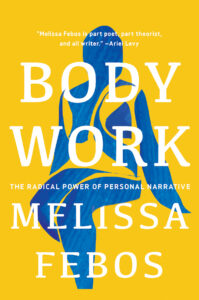 Why highlight a book about the craft of writing in a magazine for adoptees, donor conceived people, and others who’ve experienced misattributed parentage? What does it have to do with you?
Why highlight a book about the craft of writing in a magazine for adoptees, donor conceived people, and others who’ve experienced misattributed parentage? What does it have to do with you?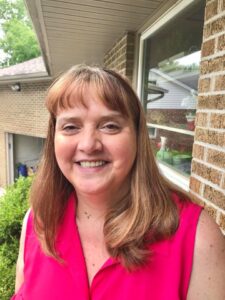 Tell me a little bit about your background, how you came to be interested in creating DNAngels, and how you educated yourself about genetic genealogy?
Tell me a little bit about your background, how you came to be interested in creating DNAngels, and how you educated yourself about genetic genealogy?